With Kojima Productions on board, 2010's Castlevania Lords of Shadow remains one of the action adventure dynasty's most intriguing installments
Opinion | 13 years on, it's safe to say Kojima Productions and MercurySteam vamped things up a few notches
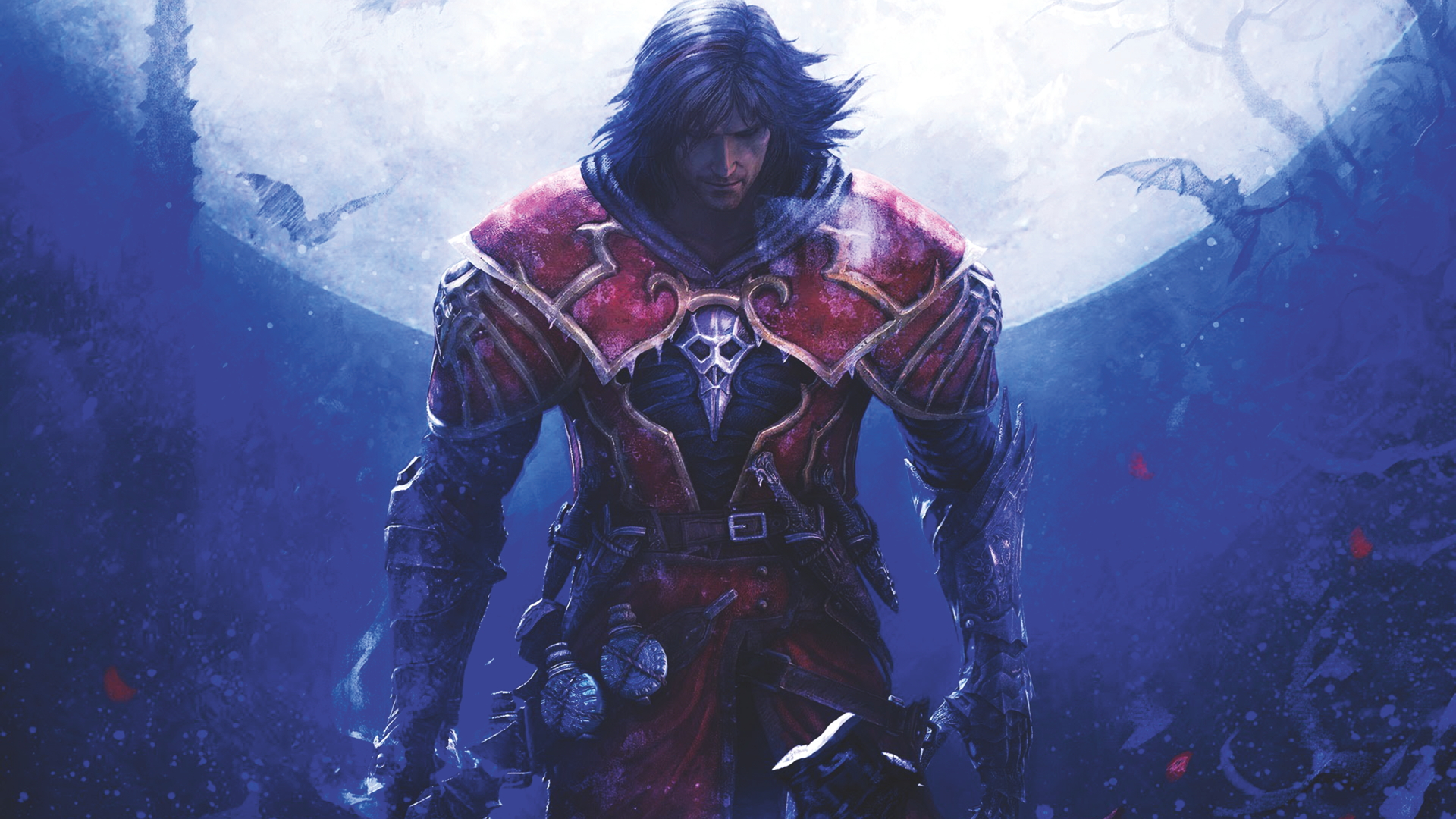
Gabriel Belmont is a classic conflicted hero, torn between light and dark. Sent out to discover why god has forsaken the world, the pious paladin of the Brotherhood Of Light is set for a purity test of – quite literally – biblical proportions. Castlevania: Lords of Shadow pushes beyond its 2D forebears' hammy, creature-feature approach to gothic imagery. Instead it adopts a Christian bent, one that's hard to miss as Gabriel journeys like Jesus into the wilderness. There our hero is beset not so much by temptation as armies of monsters.
But fortunately – to mix our metaphors a little – the cross he has to bear is a very effective weapon. Perhaps it was inevitable, as a Japanese series that always treated European mythology as a buffet of superficial delights fell into the hands of a developer more culturally invested in the setting – namely, Madrid's MercurySteam.
Sink your teeth
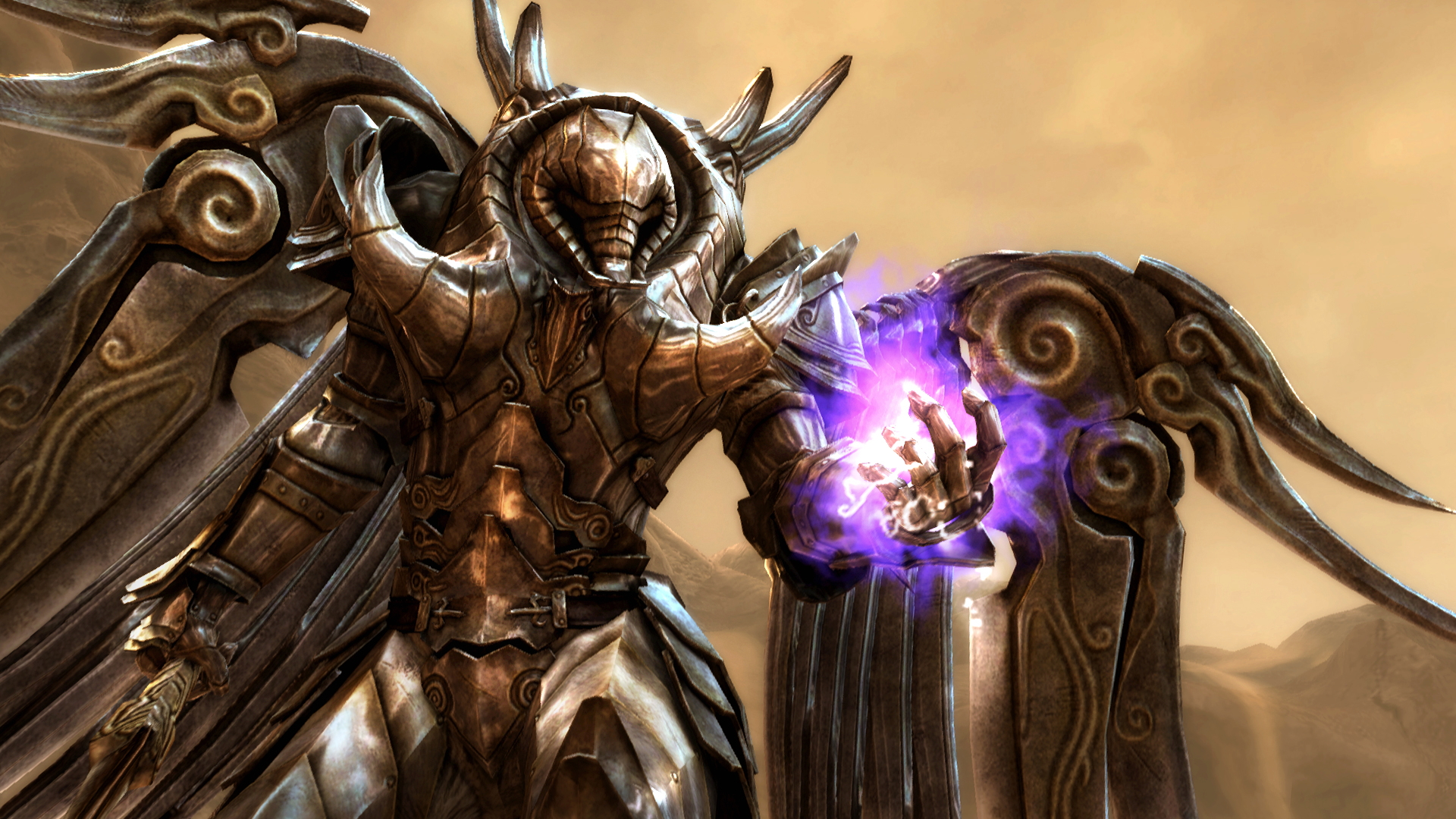
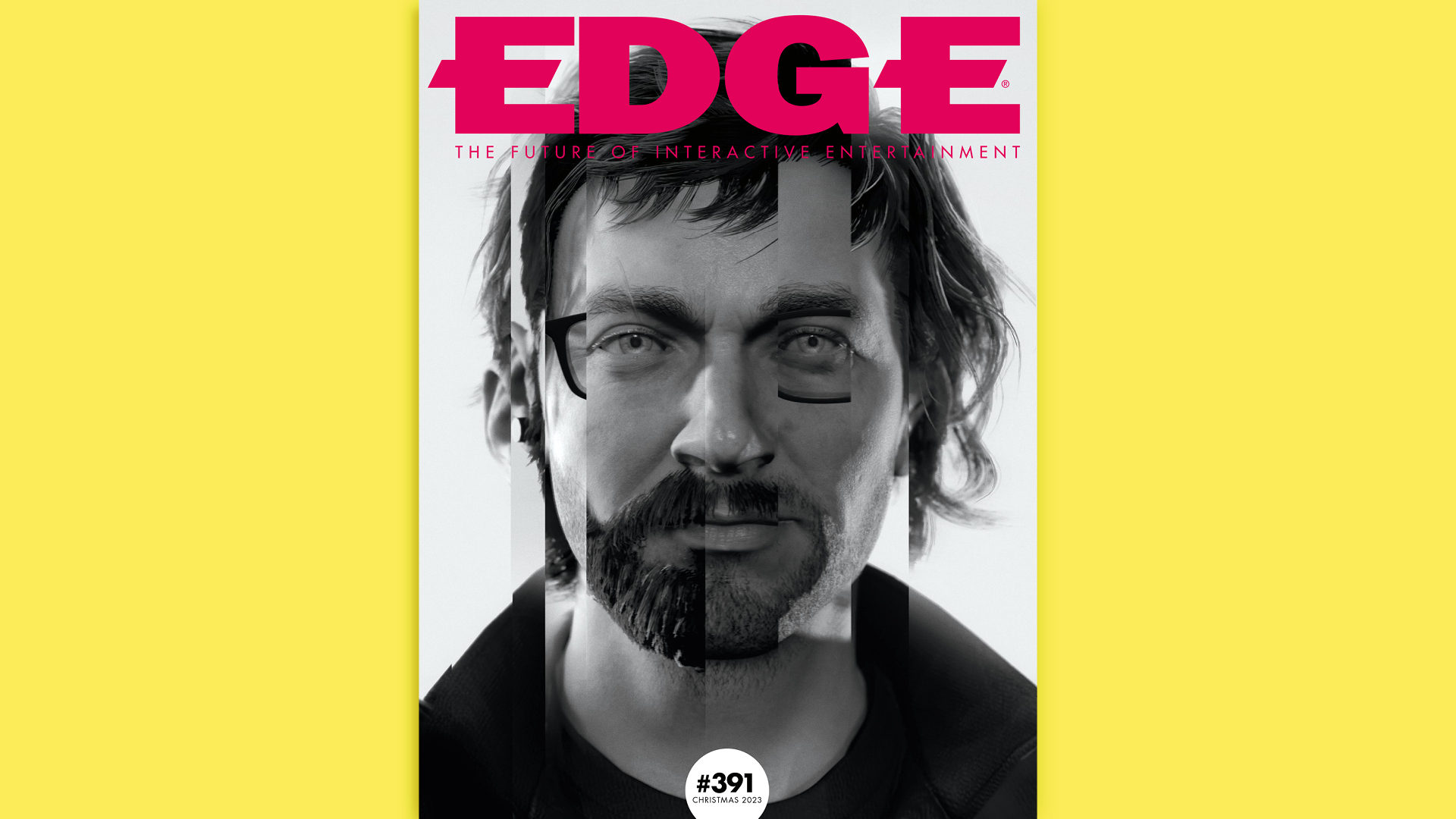
This feature originally appeared in Edge magazine. For more in-depth interviews, reviews, features, and more delivered to your door or digital device, subscribe to Edge magazine.
Take into consideration that Lords Of Shadow didn't start life as a Castlevania game, though, and it becomes apparent that this reboot is caught in a conflict of its own, between the lighter fantasy of the series' past and its own darker, weightier vision.
Despite the change in tone, the connections to Castlevania history run far deeper than just the Belmont name, and into the game's structure. Split over 46 stages, Gabriel's journey is not only a near-parallel to Jesus' 40 days and 40 nights but also the format of Super Castlevania IV – and of the recent Castlevania animated series. It's easy to imagine each of these discrete tales of heroism as self-contained 20-minute episodes, with their own portentous titles: Gabriel Versus The Ice Titan, Gabriel In The Lair Of The Giant Spiders.
These heftier narrative ambitions are apparent in the star power of Lords Of Shadow's cast – a sign, perhaps, of the involvement of producer Hideo Kojima. Narrating the chapter introductions, Patrick Stewart gamely reads his lines with ominous tenor. Gabriel himself – big, bulky, with fabulous hair – gains gravitas from Robert Carlyle, although playing the strong, silent type, the actor doesn't get that much to do. (Assuming, at least, that he didn't also record the effort noises associated with combat and climbing walls.)
Further power then comes from a world and mythology that manages to cohere even as it's divided into canapé-sized chunks. The first leg of the adventure, in which Gabriel seeks out the Guardian Of The Lake – an old pagan god he hopes can help, since his own deity has gone offline – sets the standards. You don't merely churn through underlings on the way to a boss; you work through specific, godforsaken sites to reach a hermitic legend driven to the edge of existence by the rise of monotheism.
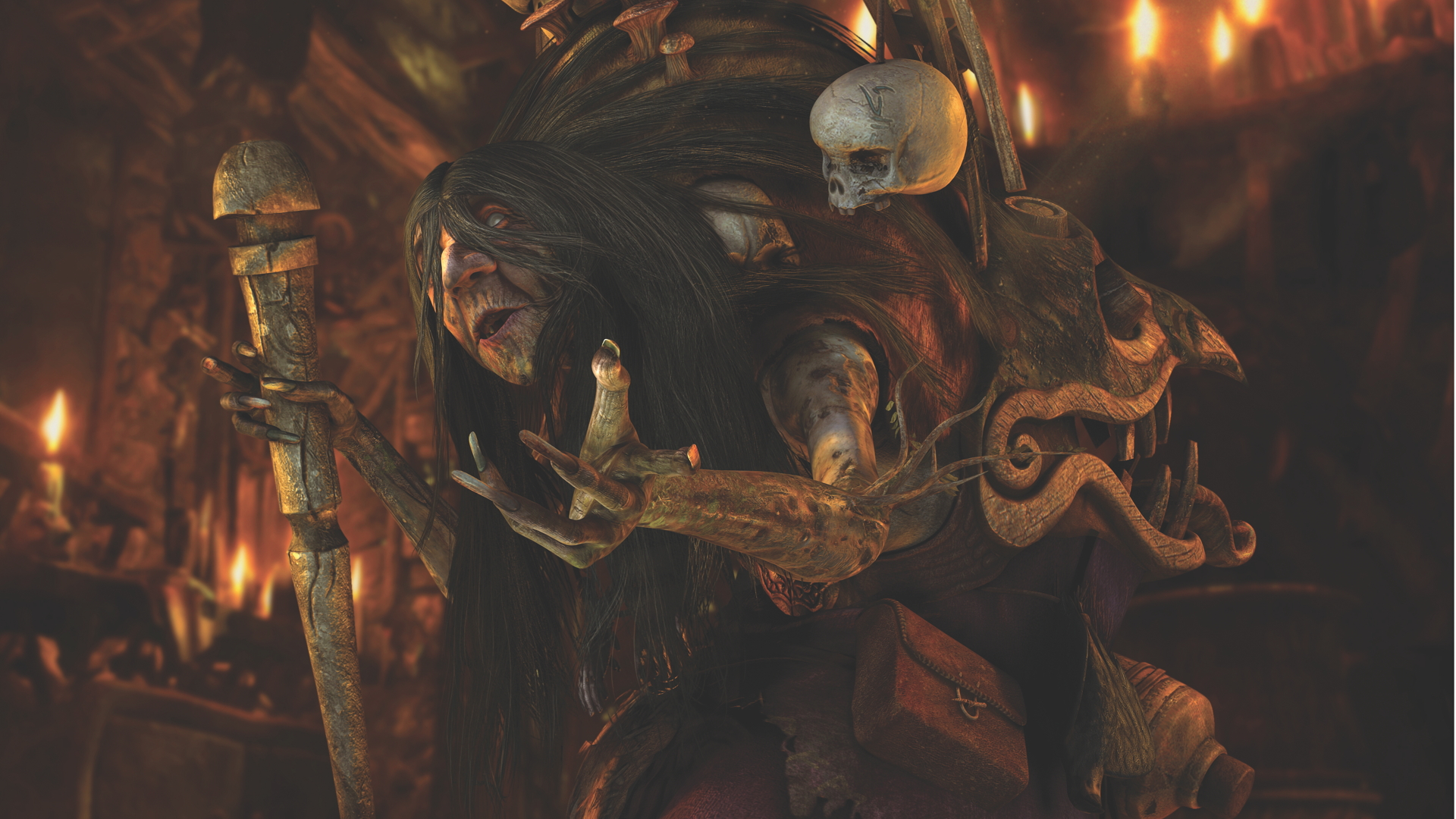
The first stage, a tutorial, sees Gabriel arrive at a village gate as the locals prepare for a Lycan attack. In grim rain and mud you repel hairless werewolves and a bearlike warg. Next you venture into the Lycan- infested forest, where a magic horse offers its back, turning the stage into a battle racer in which you swipe off the warg-riding Lycans that encroach from either side. That leads to the dead bog, with its goblins and green waters full of undead corpses that pull trespassers in. Only a few enemy types populate this whole sequence, yet as such each feels grounded in its location, as if it really does dwell there. By the time the ice titan emerges from the frozen Lake Of Oblivion, sending you into Shadow Of The Colossus mode, you can't ignore the sense that the action is being made to fit the lore, rather than the other way around.
Weekly digests, tales from the communities you love, and more
Meanwhile, the action trundles along with thrilling proficiency. God Of War is the obvious influence on combat, as Gabriel smashes foes with the sharpened extremities of his battle crucifix (not quite, you suspect, what Jesus would do) and swings crowd- controlling arcs with the weighted chain that unravels from inside. Series-staple daggers make for replenishable throwing weapons. You block, dodge and parry, then deliver simple QTE finishing moves when a battered creature begins to flash. In time, the pull of conflicting forces is literalized into a magic system, where light lets you recharge health as you attack, while dark increases your damage output and ordinary attacks replenish your mana supplies.
The suite of upgrades Gabriel unlocks throughout his journey maintain the narrative texture too. New combat techniques, such as ferocious chain lashes and spins, embody his fury as his mind blackens, while the relics he collects along his way (in the finest traditions of the genre to which Castlevania lent at least half its name) are embedded in the lore of the world. When you're awarded a gauntlet that lets Gabriel smash statues around and whack pressure panels in the floor, or boots that give him the power to sprint, it's because you've acquired a unique holy treasure: precious, hidden and guarded, if not prised from one of the Lords Of Shadow themselves. Even a second projectile weapon, the holy-water flask, is a miraculous creation that you must recover, not something that randomly drops out of smashed candelabra.
The consistency isn't always maintained, however. After the first act, when Gabriel meets Pan, the Guardian Of The Lake, and the platforming and combat intensify, levels give way to routine. Venturing to dethrone the lord of the Lycans means more carving up werewolves, of which you've already done your share by then. At other times, smaller details stick out like a sore, wolf-bitten thumb. Why, for example, when you next head to the home of the vampires, is there a warg loose in the castle? Puzzles that have you punching and rotating mirror-holding statues to reflect beams of light can also feel contrived, as does the half-baked concept of returning to previous levels to collect items that were previously out of reach.
Yet each time it threatens to become pure light entertainment, Lords Of Shadow regathers its dark strength. The vampire realm is a substantial highlight, first tasking you with taking down the crow witch Malphas, whose spell protects the undead's domain, she in turn guarded by an enormous ogre. Once inside the grand chateau, you encounter skeleton warriors in the sewers – perhaps ancient heroes defeated and flushed away – while in a great hall you yank at huge drapes to reveal sunlight, damaging the swarming bloodsuckers. Soon the lord's daughter will challenge you to a life-size board game, and you'll stumble through the lab of one Dr Frankenstein, packed with sparking Tesla coils and automatons. Finally, you scale the clocktower, a true slice of Castlevania in 3D, mercifully without the flying gorgon heads. The ideas don't dry up there, either, with one particularly memorable later puzzle inserting a shrunken Gabriel into the workings of a music box.
Face the music
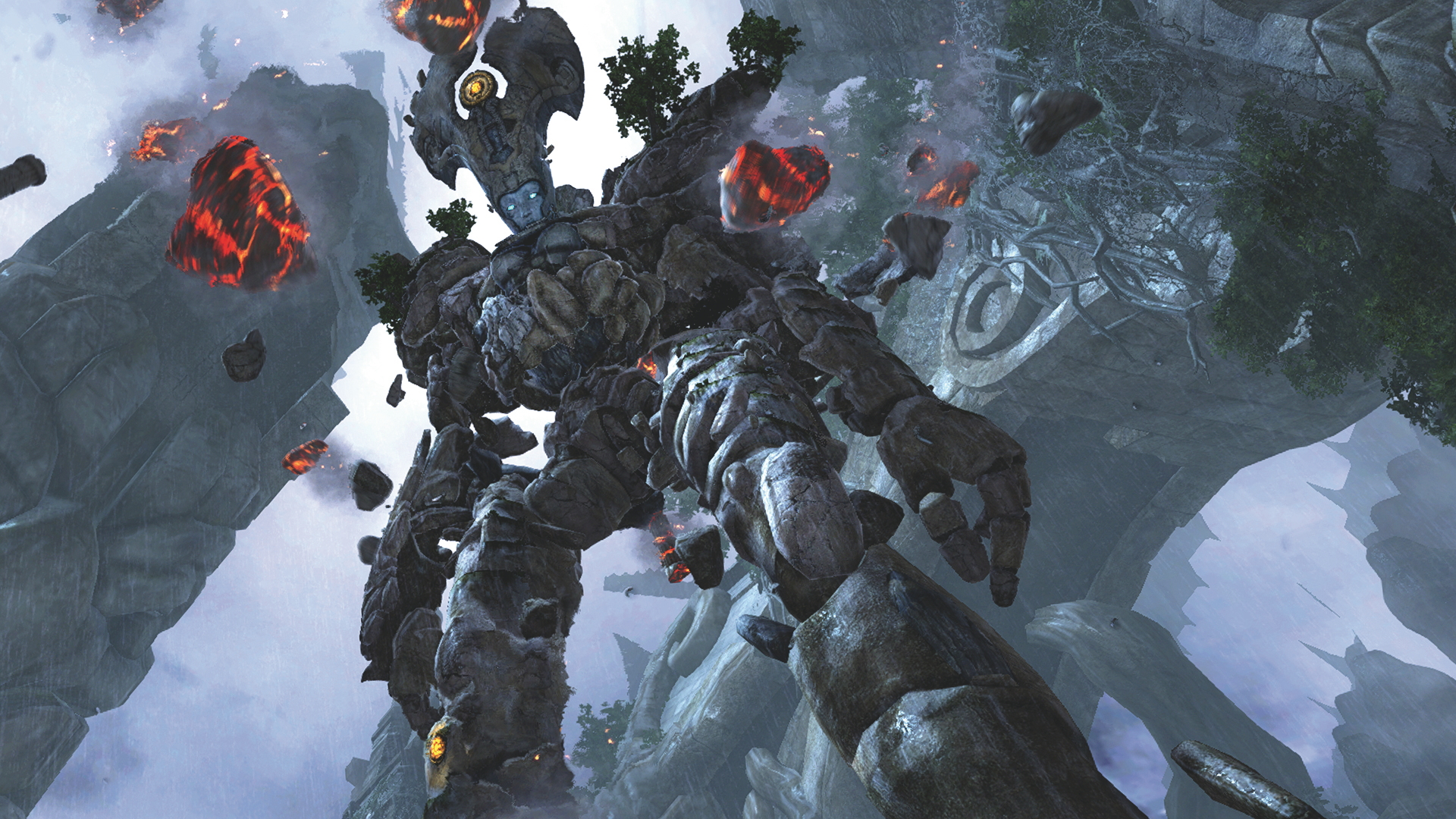
"While a good Christian would forgive such sins, though, they may feel less charitable about the plot mechanism that stakes Gabriel's motivations on a pair of dead women."
If Lords Of Shadow's dark-light balance is often harmonious in such stretches, however, it's ultimately tainted by some clumsy writing. On one side, that comes from overbearing parenting as the game guides you through each step, as if by decree that players should never have to figure out much for themselves. Thus, a new monster emerges accompanied by an intrusive message advising you to jump over its AOE attack, or you glance at an out-of-reach treasure chest only to be informed you don't have the required ability to get there yet. Worst of all, the game's titan battles are directed by text at every stage. In a self-cohesive world, it's odd to see such non-diegetic interventions.
While a good Christian would forgive such sins, though, they may feel less charitable about the plot mechanism that stakes Gabriel's motivations on a pair of dead women. With the understanding he might be able to bring his executed wife back to life, he adopts a tunnel vision that forgoes all moral concerns. That 'darkness' leads to the death of another female character, a girl named Claudia who aids Gabriel for a few episodes before he apparently, unconsciously, bumps her off in his sleep. That these women exist purely to texture the protagonist is sloppy writing, and equally undermines the gravity of Gabriel's fall from grace. This paucity of finesse is often matched by the script, as the Lords spout such hackneyed lines as "We're alike, you and I," and "Who's the real monster here, Gabriel?" You will pine for the days when a man was a miserable little pile of secrets.
Like Jesus before him, Gabriel ends his purgatory facing Satan himself. Unlike Jesus, he claims victory by beating the holy hell out of his adversary. With the devil banished, the ghosts of the slain women appear before Gabriel to forgive his sins, but he's left cursed with eternal life, which just leaves time for a present-day epilogue that reveals Gabriel has gradually morphed into Dracula himself. Sure, why not? More curious than this twist, though, is that Lords Of Shadow jettisons its light-dark struggle for plot developments that emphasize fate over free will, a strange reversal of its religious themes. Gabriel's inner conflict, so heavily emphasized throughout, becomes a triviality.
Then again, the legacy of Lords Of Shadow perhaps is one of cruel fate. Its release – sandwiched between those of Demon's Souls and Dark Souls, games which took inspiration from this same series but reinvented it more thoroughly, offering the antidote to cloying guidance and irreversibly altering our expectations of dark fantasy in games – was surely unfortunate. In FromSoftware's unrelenting wake, and with a lackluster sequel in 2014, the partial brilliance of Lords Of Shadow has become a footnote in the period. Like Gabriel, it may never ascend, the struggle to balance light and dark ultimately leaving it in the shade.
This feature first appeared in Edge Magazine issue 391, which you can pick up right now here.
Jon Bailes is a freelance games critic, author and social theorist. After completing a PhD in European Studies, he first wrote about games in his book Ideology and the Virtual City, and has since gone on to write features, reviews, and analysis for Edge, Washington Post, Wired, The Guardian, and many other publications. His gaming tastes were forged by old arcade games such as R-Type and classic JRPGs like Phantasy Star. These days he’s especially interested in games that tell stories in interesting ways, from Dark Souls to Celeste, or anything that offers something a little different.


